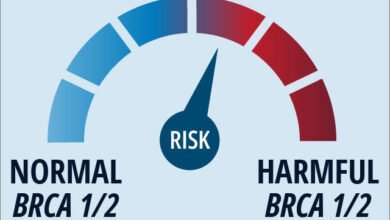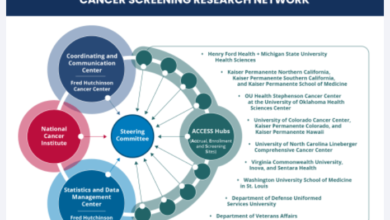Sugar and cancer – what you need to know

This post was first published in 2017 and was most recently reviewed and updated in August 2023.
There’s a lot of information online about sugar and cancer, but not much of it is based on scientific evidence. In this article we’re going to take a long hard look at sugar and bust some myths: Can sugar cause cancer? Does sugar feed cancer cells?
We’ll also cover why the amount of sugar in our diets is cause for concern – just not for the reason that often appears in the headlines.
First, let’s start with the basics: why do our bodies need sugar and what foods do we get it from?
Glucose – the fuel of life
There is a common myth that sugar is responsible for cancer developing, or that it even fuels cancer to grow bigger. But this myth came from an over-simplification of some complicated biology. Let’s start with what sugar actually is.
Sugar comes in many different forms. The simplest of which is just as a single molecule, like glucose or fructose, a couple of sugars you might have heard of.
These molecules of simple sugars can stick together. For example, one glucose molecule sticking to one fructose molecule becomes sucrose – also known as table sugar.
Combinations of these molecules can add up into long chains that make up complex sugars, often referred to as carbohydrates. These are our body’s main source of energy.
As chains of sugar get longer, they lose their sweet taste. These chains are called polysaccharides, and are a large component of starchy foods like rice, bread, pasta, and potatoes.
So, while some foods may not taste sweet, they can still contain sugar in a complex form. And this is good, because our bodies can break down complex sugars into simple sugars like glucose and use it to fuel our body.
Our body is made of millions of cells, and each type of cell has a different job – from muscle cells that help us move, to nerve cells that help us feel.
While their jobs in the body may differ, one thing all these cells have in common is that they need energy to survive and perform their duties. They get this energy from a molecule called ATP, which they make by breaking down glucose in a complex chemical process called glycolysis.
So, glucose is the basic fuel that powers every single one of our cells.
If we eat or drink things that are high in glucose, such as fizzy drinks, the glucose gets absorbed straight into our blood ready for our cells to use. If a starchy food, like pasta, is on the menu, the enzymes in our saliva and digestive juices break it down and convert it into glucose. And if for some reason there’s no carbohydrate in our diet, cells can turn fat and protein molecules into glucose as a last resort, because they need it to survive.
It’s here that sugar and cancer start to collide, because cancer is a disease of cells.
Sugar and cancer
Cancer cells usually grow quickly, multiplying at a fast rate, and that requires a lot of energy. That means they need lots of glucose.
Here’s where the myth that sugar fuels cancer was born: if cancer cells need lots of glucose, then cutting sugar out of our diet must help stop cancer growing, and could even stop it developing in the first place, right?
Unfortunately, it’s not that simple. All of our healthy cells need glucose too, and there’s no way of telling our bodies to let healthy cells have the glucose they need without also giving it to cancer cells. And cancer cells also need lots of other nutrients too, like amino acids and fats; it’s not just sugar they crave.
There’s no evidence that following a “sugar-free” diet lowers the risk of getting cancer, or that it boosts the chances of surviving if you are diagnosed.
Source link
#Sugar #cancer



